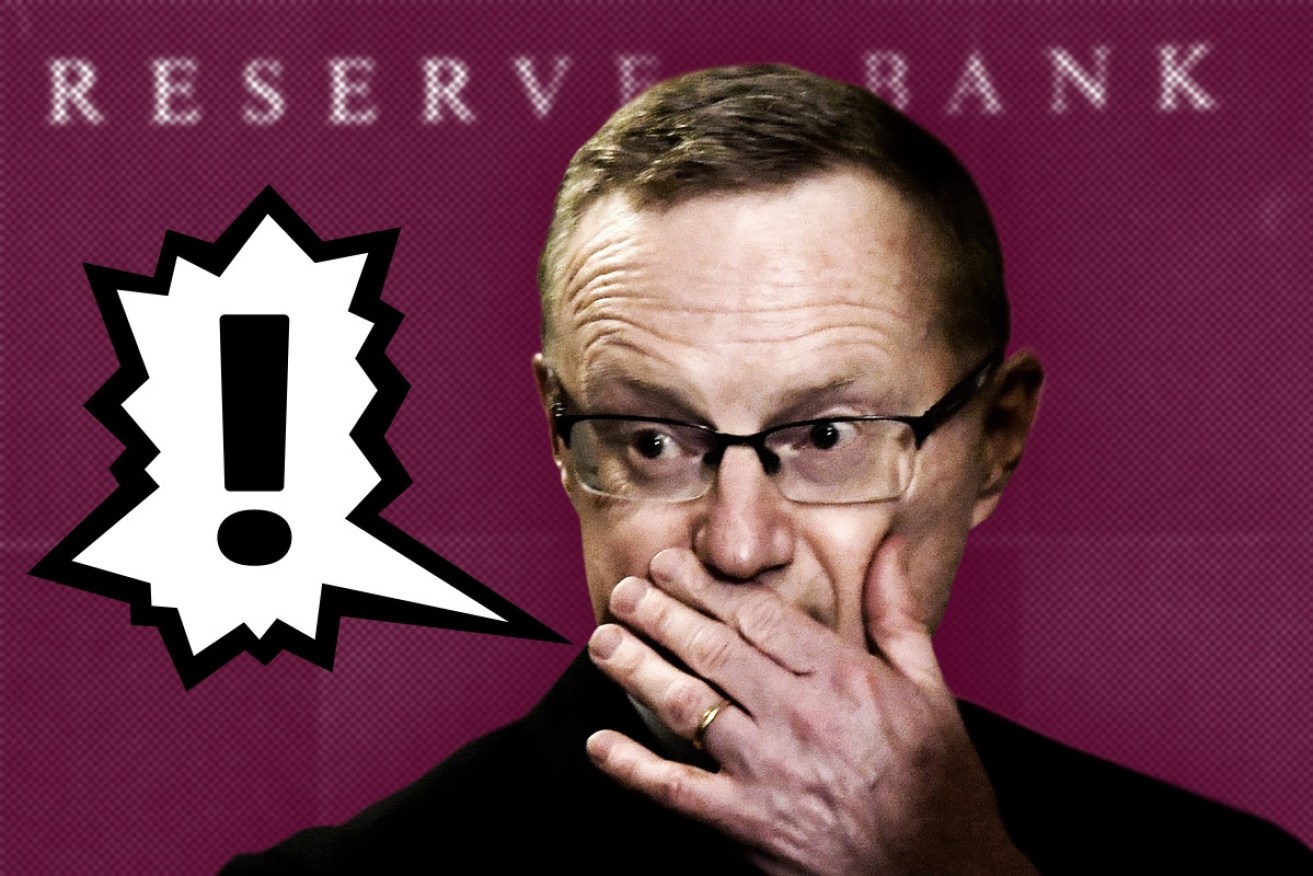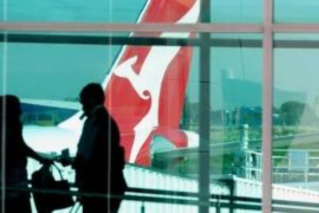Oops! RBA admits it sent wrong signal on rates

"We knew that it could be an issue": RBA Governor Philip Lowe. Graphic: Simon Rankin
Reserve Bank governor Philip Lowe has admitted his bank knew that talking about rates might spook the market, and that it could’ve prevented the days of currency chaos that followed.
At a parliamentary hearing on Friday, Dr Lowe said “we might have been able to better handle” the release of a market-sensitive statement that sent the Australian dollar soaring.
“We knew that it could be an issue,” he told the committee.
“I understand there was some short-term reaction in markets. It’d be better if that hadn’t occurred, but people now understand where we’re coming from.”
It was a typically understated response to days of frenzied speculation among borrowers and investors, who mistakenly thought the RBA was about to embark on a punishing string of rate rises.
The hysteria was triggered by the RBA’s July minutes, published on July 18, in which the central bank said the new “neutral cash rate” was 3.5 per cent.
Dr Lowe said this was supposed to be a dry, “analytical” discussion, but that’s not how the nation interpreted it.
That’s because the neutral cash rate is the theoretical point at which the RBA’s interest rate switches from stimulating the economy to slamming the brakes on growth.
It was widely interpreted as a signal the bank was eyeing a 200 basis point increase, from the current 1.5 per cent all the way up to 3.5 per cent.
This caused the Australian dollar to soar against the US dollar, with potentially huge ramifications for overseas travellers, online shoppers, investors operating in the foreign exchange market and exporters.
The RBA governor admitted on Friday the bank’s “strategy” was to schedule a speech later in the week in case there was “some misunderstanding of our intentions”, rather than including a clarifying remark in the minutes themselves.
“That was our strategy. If people misinterpreted what we said, then [deputy governor] Guy [Debelle] would provide the full context later in the week.”
The bank stuck to its plan. Despite the market reaction, the RBA chose not to speak publicly until July 21, a full three days after the ‘neutral’ statement, when Mr Debelle gave a scheduled speech hosing down “all the kerfuffle”.
Economics committee chair David Coleman asked why the RBA didn’t simply include a note in the minutes.
Dr Lowe replied: “It might have been [prudent]. People have their own views on that.”
He denied the bank had learned anything useful from its mistake.
“Are there any lessons there? I don’t think there are, particularly. It’s good that the community understand that the board has these deep dives into particular issues and there shouldn’t be any particular significance read into that.”
Dr Lowe hits out at CBA
After defending his own actions, Governor Lowe trained his sights on the Commonwealth Bank, which has been accused of more than 53,000 “very serious” alleged breaches of anti-money laundering cases.
“Banks should not be doing money laundering and they should know who is operating the accounts that they open, they are very important laws and they need to be respected,” Dr Lowe told the economics committee.
“If shortcomings are identified then there needs to be accountability and that accountability needs to be both through the courts and internally within the organisation.”
Dr Lowe also said public trust in banks had been “strained” and that sales had overtaken customer service as the industry’s primary concern.
“It’s fair to say service has taken a back seat to sales and the banks know that and they’re addressing it [with] changes in remuneration structures and incentives in the organisation.
“But there’s been for too long a focus on sales and not on service.”
More bad news for CBA
Dr Lowe’s comments followed confirmation from corporate regulator ASIC that it was considering an investigation into the Commonwealth Bank’s more than 53,000 alleged breaches of anti-money laundering cases.
ASIC boss Greg Medcraft told a separate parliamentary hearing on Friday that the allegations were “very disappointing” and a “problem of culture”, and that he was disappointed the bank never notified ASIC it was facing potential legal action.
“It’s always better to be more transparent,” Mr Medcraft said.
“Share everything you can, don’t hold back.”








